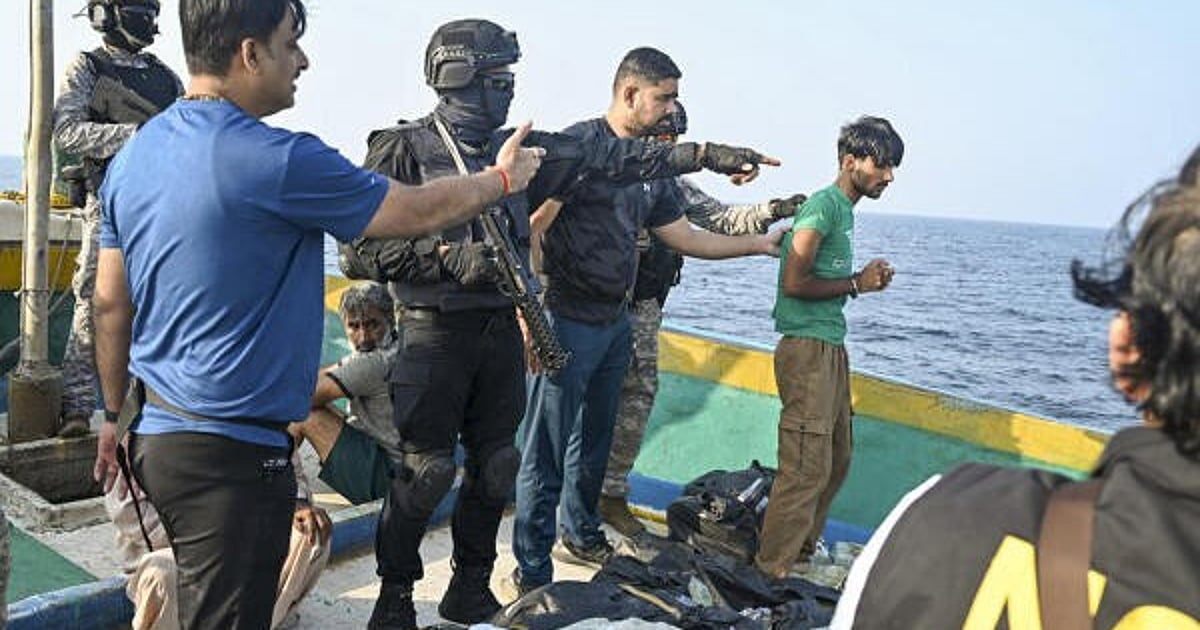 |
|
The recent drug bust in Gujarat has sent shockwaves through the state and highlighted the persistent challenge of transnational drug trafficking. Eight foreign nationals were arrested in connection with the seizure of a massive quantity of methamphetamine, a highly addictive synthetic stimulant, with an estimated street value between Rs 2,500 crore and Rs 3,500 crore. This staggering amount underscores the scale of the operation and the potential impact on public health and security. The arrests and subsequent four-day remand of the suspects signal a strong response from law enforcement agencies, demonstrating their commitment to tackling the illicit drug trade. However, the sheer magnitude of the seizure raises serious questions about the effectiveness of current strategies and the need for enhanced international cooperation to disrupt these sophisticated criminal networks.
The involvement of foreign nationals in this operation suggests a complex transnational network responsible for the smuggling and distribution of methamphetamine. Investigations will likely focus on identifying the origin of the drugs, the routes used for smuggling, and the individuals or organizations involved in the larger supply chain. This will require collaboration with international law enforcement agencies, sharing intelligence and coordinating efforts to dismantle the criminal network responsible. The success of these investigations will depend on the cooperation of various countries, particularly those where the drugs may have originated or where key members of the trafficking ring are based. This collaborative effort is crucial not only to bring those responsible to justice but also to disrupt the flow of illegal drugs into Gujarat and potentially other regions.
The seizure of such a large quantity of methamphetamine has significant implications for public health. Methamphetamine is a highly addictive substance with devastating consequences for users, leading to serious health problems, mental health issues, and social disruption. The potential impact of this amount of drugs reaching the streets is alarming, highlighting the vital role of law enforcement in preventing its distribution and minimizing harm to communities. Public health initiatives will also need to play a crucial part, focusing on prevention, treatment, and harm reduction strategies to address the underlying causes of drug addiction and support those affected. This necessitates a multi-faceted approach combining law enforcement, public health, and social support initiatives to tackle the problem effectively.
Beyond the immediate implications, this case highlights the broader challenge of combating drug trafficking in India and globally. The sophisticated nature of these operations necessitates continuous adaptation and innovation by law enforcement agencies. This includes developing advanced investigative techniques, enhancing intelligence gathering capabilities, and leveraging technology to track and disrupt illicit networks. International collaboration is also critical to address the transnational nature of drug trafficking, involving coordinated actions and information sharing between different countries. Furthermore, the case underscores the need for robust legal frameworks and effective judicial processes to ensure swift and decisive action against those involved in drug trafficking, deterring future criminal activities.
The success of this operation and future efforts to combat drug trafficking depend on the coordination between various law enforcement agencies, both domestically and internationally. Information sharing and collaboration are crucial to tracing the origins of these drugs, identifying the key players in the network, and dismantling the organization responsible for their distribution. The four-day remand of the suspects provides a window for investigators to gather crucial evidence and build a strong case for prosecution. This will hopefully lead to successful convictions, serving as a deterrent to others considering involvement in such activities. The long-term success, however, requires a sustained commitment to combating drug trafficking through a combination of law enforcement, public health interventions, and international cooperation.
Source: Mega Gujarat drug haul: Eight foreign nationals remanded in 4-day police custody
